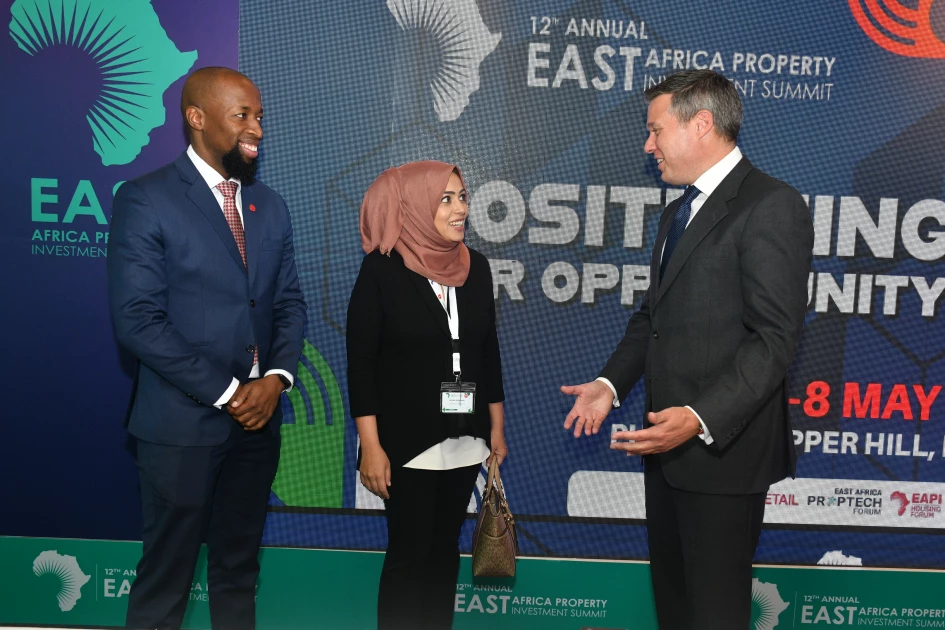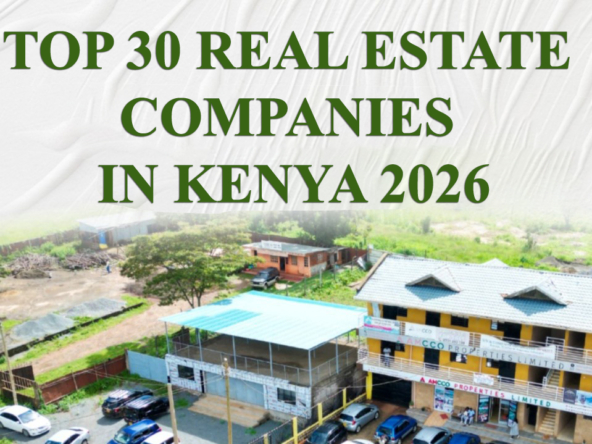5 Amazing Trends: Your Guide to East African Real Estate Investment in 2025
Ever dreamt of making a smart investment that truly grows? Well, let’s talk about East African Real Estate Investment. This isn’t just about bricks and mortar; it’s about a vibrant, dynamic market that’s buzzing with potential, drawing in savvy investors from all corners of the globe. East Africa is a region on the rise, fueled by bustling cities, steady economic growth, and ambitious projects that are literally reshaping the landscape.
And right at the heart of it all? Kenya, leading the charge as a regional powerhouse and a beacon of innovation in property. This article is your personal tour through the exciting world of East African Real Estate Investment, shining a light on Kenya’s crucial role, the hottest trends for 2025, and those golden opportunities just waiting for you, whether you’re eyeing fertile agricultural land or cutting-edge niche sectors
Unpacking the EAC Common Market Protocol: What It Means for Your East African Real Estate Investment
Think of the East African Community (EAC) Common Market Protocol (CMP) as a grand plan to bring the region closer, making it easier for people, goods, and money to move freely. Since 2010, this protocol has been quietly working to break down barriers, turning individual national markets into one big, exciting playground for investors. And guess what? This has huge implications for your East African Real Estate Investment dreams:

- Lower Costs, Bigger Smiles: When it’s easier to do business across borders, transaction costs tend to drop. That means more of your investment goes into the property itself, not into red tape.
- A Wider Audience for Your Property: With people and capital moving more freely, the pool of potential buyers or tenants for your real estate developments just keeps growing across the partner states. Imagine the possibilities!
- Fueling Growth and Industry: A united market encourages more investment, especially in commercial and industrial properties, because businesses can now serve a much larger regional customer base.
- Your Right to Settle and Thrive: As an EAC citizen, you gain the right to set up businesses and even live in any partner state. This directly boosts demand for homes and business spaces wherever you choose to invest.
Now, a little heads-up: while the CMP is all about freedom, individual countries still have their own land laws. For example, Kenya’s constitution has some rules about who can own freehold land. So, while the spirit of the CMP is fantastic for East African Real Estate Investment, always remember to check the local specifics. It’s all part of being a smart investor!
Kenya’s Starring Role in Your East African Real Estate Investment Journey
When it comes to East African Real Estate Investment, Kenya isn’t just a player; it’s often the star of the show. This country is a true leader in the region’s property market, attracting serious investment and setting the pace for exciting new trends. Here’s why Kenya holds such a pivotal position:
- A Rock-Solid Economy: Kenya boasts a stable, pro-investment government and business-friendly rules that create a fantastic environment for real estate to flourish. Its economy has been growing steadily, even outperforming many others in Sub-Saharan Africa.
- Sophisticated Financial Hub: Kenya’s financial markets are the most advanced in East Africa. This means easier access to funding for those big real estate projects you might be dreaming of.
- Nairobi: The Regional Magnet: Nairobi isn’t just a capital city; it’s a bustling regional business hub. It draws in international investors, diplomats, and even Kenyans living abroad, creating a constant demand for top-notch homes, offices, and serviced apartments.
- Home of the EAPI Summit: The East Africa Property Investment (EAPI) Summit, the region’s biggest real estate event, happens right here in Nairobi every year. It’s where over 450 global investors and developers meet, showing just how central Kenya is to the region’s property scene.
- Local Know-How is King: There’s a growing trend of local developers and regional funds taking the lead. Their deep understanding of how things work on the ground, their local networks, and their ability to manage finances in local currencies give them a real edge. This local fluency is a huge advantage when you’re looking at East African Real Estate Investment.
So, when you combine Kenya’s strong economy, impressive infrastructure, and deep local market knowledge, you see why it’s such a powerful magnet for capital and a true benchmark for real estate development across East Africa.
5 Amazing Trends Shaping East African Real Estate Investment in 2025
The world of East African Real Estate Investment is constantly evolving, and 2025 is bringing some exciting shifts. Keeping an eye on these trends will help you make the smartest moves:
The Rise of Local Power in East African Real Estate Investment Forget the old days when foreign investors called all the shots. We’re seeing a big shift towards a more homegrown approach. Success now hinges on understanding the local scene, having strong networks, and being able to manage finances in local currencies. This means local developers and regional funds are stepping up, becoming the true driving force behind exciting new projects across East African Real Estate Investment.
Smart Adaptability in Commercial Real Estate Leasing and Pricing for East African Real Estate Investment The commercial property market is facing some interesting challenges, like higher capital costs and currency fluctuations. But this is also creating new opportunities for clever investors! Being flexible with lease agreements – whether it’s using US dollar-indexed agreements or local currency leases – is becoming key. Even with these shifts, prime office spaces in Nairobi and stable retail centers in places like Dar es Salaam and Kampala are holding strong. Adaptability is your superpower in this segment of East African Real Estate Investment.
The Boom of Niche Asset Classes Across East African Real Estate Investment Beyond the usual homes and offices, specialized property types are really taking off. These niche sectors are fueled by rapid urbanization and specific, unmet needs, opening up fantastic new avenues for your East African Real Estate Investment portfolio. Let’s dive into some of the most exciting ones, including a closer look at agricultural land and other high-growth areas.
Agricultural Land Kenya: A Vital Niche for East African Real Estate Investment As the world hungers for more food and demands sustainable practices, investing in agricultural land in Kenya is becoming incredibly smart and resilient for 2025. This isn’t just about making money; it’s about contributing to food security and boosting the economy across East Africa. If you’re an investor looking for something different from city properties, agricultural land in Kenya offers a compelling path to long-term wealth and a real impact within the broader East African Real Estate Investment landscape.
Why Invest in Agricultural Land Kenya? Putting your money into agricultural land in Kenya is a strategic move, backed by powerful reasons that ensure its value and profitability:
- Growing Global Food Demand: People always need to eat! This makes agricultural produce a consistently valuable commodity.
- Steady Returns: Generally, agricultural land offers attractive returns, typically ranging from 6% to 10% annually. That’s a nice, stable income stream from farming or leasing.
- A Tangible Asset That Grows: Just like other land, agricultural plots appreciate over time, giving you capital gains on top of your farming income. It’s a physical asset that offers security, even when other markets are shaky.
- Smart Diversification: Adding agricultural land in Kenya to your portfolio is a great way to spread your risk, balancing out investments in city properties or more volatile financial markets.
- Government Backing: The Kenyan government knows how important agriculture is. They often support the sector with policies and infrastructure development in rural areas.
- Flexible Use: You can do so much with agricultural land! Grow high-value crops, raise livestock, or even lease it to agribusinesses. Multiple income streams are always a good thing.
Key Strategies for Profitable Agricultural Land Kenya Investment To really make your agricultural land in Kenya investment shine, you need a smart, informed approach. Here are some key strategies to consider:
- Pick the Perfect Spot: Location is everything! Think about the climate, soil type, and how easy it is to get to. Kenya has amazing diverse farming zones. Areas like the Rift Valley (Nakuru, Narok), Western Kenya (Trans Nzoia, Bungoma), parts of Central Kenya (Nyandarua, Laikipia), and specific zones in the Coast and Eastern regions are great for different types of farming. Being close to markets, water, and good roads makes a huge difference.
- Know What the Market Wants: Do your homework! Focus on crops that are in high demand and bring in good profits. Think Hass avocados for export, or popular herbs and spices like coriander and ginger. Understanding the whole journey from farm to plate is key.
- Embrace Smart Farming: Modern, sustainable farming practices can really boost your yields. This means healthy soil techniques, smart pest management, and using renewable energy like solar-powered irrigation. These technologies make your agricultural land in Kenya more productive and resilient, protecting your investment.
- Add Value, Boost Profits: Don’t just sell raw produce! Think about processing your crops into higher-value products like juices or dried herbs. Good packaging and a strong brand can fetch better prices. You could even sell directly to consumers or explore agro-tourism if your land is beautiful.
- Manage Your Risks: Every investment has risks. Plan for climate change with drought-resistant crops. Have a solid plan for pests and diseases. Diversify your crops and explore different sales channels to protect against market ups and downs.
- Explore Financing: There are options! Look into traditional bank loans or affordable credit from government institutions like the Agricultural Finance Corporation (AFC).
Average Land Prices for Agricultural Land Kenya by Region (2025) The price of agricultural land in Kenya varies a lot depending on where it is, how fertile the soil is, water access, and infrastructure. Here’s a general idea of prices per acre in good farming areas:
- Remote Rural Areas (e.g., parts of Kajiado County like Bisil, Mashuuru; Laikipia North; Interior Kitui areas; Taita Taveta interiors): You might find land for KSh 100,000 to KSh 600,000 per acre. These are the cheapest, but might have less infrastructure and water.
- Emerging Agricultural Hubs (e.g., Rumuruti in Laikipia, Isinya farther from main road): Prices start from KSh 250,000 to KSh 900,000 per acre. These areas are growing with new infrastructure and business.
- Fertile Agricultural Zones (e.g., Kimana in Kajiado, Olkalou in Nyandarua, Narok): Expect to pay KSh 800,000 to KSh 3.5 million per acre. These are known for high productivity. For example, you could find 10 acres in Kimana for KSh 800,000 per acre, or 70 acres in Olkalou for KSh 1.3 million per acre. Larger plots in Narok might be KSh 550,000 per acre for 97 acres, or even KSh 300,000 per acre for 170 acres.
Legal Considerations for Foreigners Investing in Agricultural Land Kenya If you’re a foreigner looking at agricultural land in Kenya, there are some important legal rules. Generally, foreigners can’t own agricultural land directly. But don’t worry, there are ways:
- Kenyan-Incorporated Company: The most common way is to buy land through a Kenyan company where at least 51% of the ownership is local (Kenyan). This makes it legal for the company to own the land.
- Land Control Board (LCB) Approval: Even with a Kenyan company, you’ll usually need approval from the Land Control Board for agricultural land transactions. They often approve projects that benefit the public, like large farms that help with food security or create jobs.
- Leasehold Conversion: If a foreigner inherits freehold agricultural land, it automatically changes to a 99-year leasehold. It’s super important to work with experienced Kenyan property lawyers. They’ll help you navigate these complex rules and make sure your investment is fully legal and secure.
Other Emerging Niche Real Estate Investment Sectors in East Africa Beyond the rich agricultural lands, East Africa is buzzing with other specialized opportunities for East African Real Estate Investment:
- Data Centers: The Digital Backbone: As East Africa goes digital, the demand for powerful data centers is exploding. These specialized facilities are crucial for all those online services, apps, and businesses.
- Affordable Housing: Bridging the Gap: Many East African countries need more homes, especially for lower-income families. Governments are pushing programs to fix this, creating huge opportunities for investors who want to build homes that truly make a difference.
- Purpose-Built Student Accommodation (PBSA): A Growing Niche: With more students going to university, there’s a big need for modern, safe, and comfortable student housing. PBSA offers stable rental income and high occupancy rates.
- Serviced Apartments & Dual-Branded Hospitality: Modern Living: Tourism is booming, and people want flexible living spaces. Serviced apartments and innovative hotel concepts (like having two brands in one building) are gaining popularity, offering diverse income streams.
- Modern Industrial Parks & Logistics Hubs: The E-commerce Niche: The rise of online shopping means businesses need modern warehouses and distribution centers. Investing in these strategically located industrial parks is key to supporting the region’s growing e-commerce and manufacturing sectors.
Infrastructure-Driven Growth and Urban Regeneration in East African Real Estate Investment Think of new roads, expanded ports, and modern railways – these aren’t just about getting around; they’re supercharging property values and opening up brand new development areas across East Africa. In Kenya, projects like the Nairobi Expressway and the expanded Mombasa port are making areas more accessible and boosting economic activity. Plus, efforts to revitalize and densify older city areas are transforming urban landscapes, creating demand for property in places that might have been overlooked before. This trend is a huge driver for East African Real Estate Investment.
Focus on Data and Long-Term View for East African Real Estate Investment Smart investors are now looking at the market with a clear head, using data to make decisions and planning for the long haul. Even with some ups and downs, the resilience of key markets (like Nairobi’s land sector in early 2025) shows that real estate is a reliable asset that keeps growing in value. This strategic, long-term approach helps you understand the best locations, timing, and demand cycles, leading to more sustainable and profitable ventures in East African Real Estate Investment.
Cross-Border Investment Opportunities for East African Real Estate Investment
The EAC Common Market Protocol isn’t just about rules; it’s about creating exciting cross-border opportunities for you as an East African investor or business:
- Diversify Your Portfolio: Why put all your eggs in one basket? You can now invest in properties across different EAC member states, spreading your risk and taking advantage of varied market conditions.
- Access Bigger Markets: With the freedom to set up businesses and move capital, you can expand your operations across the entire region, creating more demand for your commercial and industrial properties.
- Tap into Local Knowledge: Partnering with local developers and real estate pros in each country is a game-changer. They know the local rules, understand what people want, and have the networks to make things happen.
- Explore Emerging Cities: Don’t just look at the capitals! Secondary cities and growing urban centers in Tanzania (like Dar es Salaam), Uganda (like Kampala), and Rwanda are seeing fantastic growth, offering potentially higher returns for those who get in early.
Remember, while Kenya’s land laws have some restrictions for non-citizens, there are still plenty of ways to invest, like long-term leases or setting up companies. These avenues provide legal pathways for your cross-border East African Real Estate Investment.
Conclusion: Kenya’s Enduring Influence in East African Real Estate Investment
The world of East African Real Estate Investment in 2025 is bursting with potential. It’s a dynamic market, growing fast and becoming more connected across the region. Kenya, with its strong economy, sophisticated financial markets, and strategic location, continues to be a major force, shaping the entire market. The shift towards relying on local expertise, the exciting rise of niche sectors (including the incredibly important agricultural land segment), and the need for smart, adaptable strategies are defining what it means to invest successfully right now.
For you, the East African investor, the opportunities to build wealth across borders are huge. Just make sure you approach the market with a clear plan, do your homework thoroughly, and be open to understanding the local way of doing things. By grasping how regional agreements and national laws work together, and by teaming up with trusted local partners, you can confidently navigate the complexities and contribute to the vibrant future of East African Real Estate Investment. It’s an exciting time to be an investor in this incredible region!
Frequently Asked Questions (FAQs) about East African Real Estate Investment
Q1: How does the EAC Common Market Protocol affect East African Real Estate Investment? The EAC Common Market Protocol aims to make it easier for goods, people, services, and capital to move freely across East Africa. This helps reduce costs, create bigger markets, and boost investment in East African Real Estate Investment, though it’s always wise to check specific national land laws.
Q2: What is Kenya’s role in the East African Real Estate Investment market? Kenya is a key leader in the region, thanks to its stable economy, advanced financial markets, and strategic location. Nairobi hosts major real estate summits, and local Kenyan developers are increasingly driving new projects across the region, making it a central hub for East African Real Estate Investment.
Q3: What are the key trends in East African Real Estate Investment for 2025? Key trends include a shift towards more local investment, flexible commercial leasing options, the rise of niche sectors like data centers and agricultural land, and growth driven by new infrastructure and urban development. These trends are shaping the future of East African Real Estate Investment.
Q4: Can East African citizens own freehold land in other EAC countries like Kenya? While the EAC Protocol encourages free movement, national land laws still apply. In Kenya, for example, non-citizens (including EAC citizens) are generally limited to owning land on a leasehold basis or through Kenyan-incorporated companies, rather than outright freehold ownership.
Q5: What are some emerging niche sectors for East African Real Estate Investment? Exciting niche sectors for East African Real Estate Investment include agricultural land, affordable housing, purpose-built student accommodation, data centers, serviced apartments, and modern industrial parks. These areas are seeing high demand and offer unique growth opportunities.




